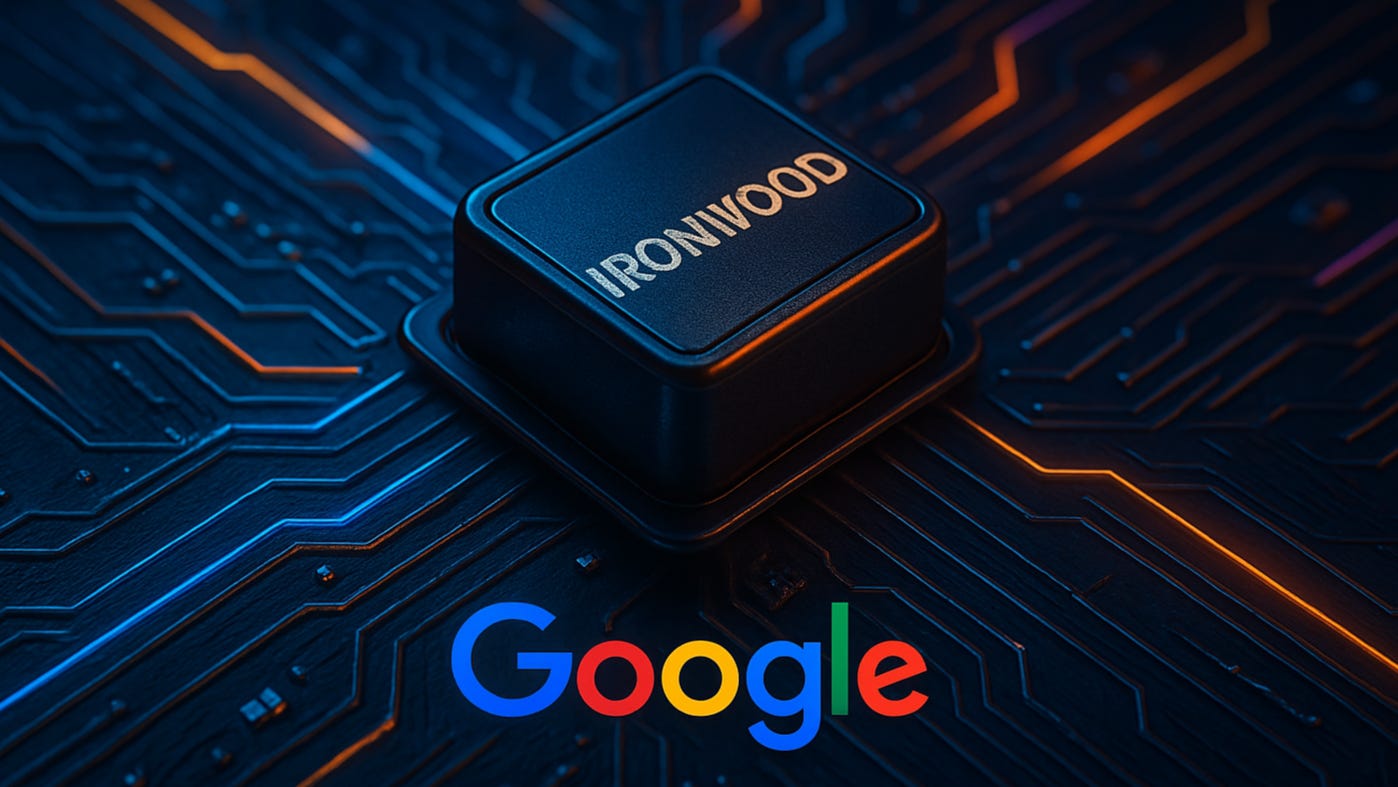📰 Google’s Ironwood: Built to Change the Game
With Ironwood, Google is making a bold move in the AI hardware space, no hype, no overpromises, just a chip that might quietly change how AI runs at scale, if it delivers on its promise.
These days, it feels like there’s a new AI chip announcement every other week. But every now and then, one comes along that makes you pause and think, okay, this could actually matter. Google’s GOOGL 0.00%↑ new chip, Ironwood, is one of those.
Unveiled at the Cloud Next conference, Ironwood is Google’s seventh-generation TPU (Tensor Processing Unit). But unlike previous versions, this one isn’t built for training massive AI models. It’s made for running them, what’s called inference, which is quickly becoming just as important.
From training to doing
When we talk about AI, we often focus on the training phase, the part where the model is “learning.” But in the real world, what matters just as much is what happens afterward: when the model is actually used. That’s inference. It’s what powers chatbots when they reply to you, recommendation systems when they suggest your next playlist, and search engines when they decide what you’ll see first.
Ironwood is built specifically for that phase. And according to Google, it’s their most powerful and energy-efficient TPU to date, delivering over 4,600 teraflops of performance and 192GB of RAM per chip. But what’s more interesting is how the chip is designed to reduce unnecessary data movement inside it, which means lower latency and less wasted energy. Smart efficiency, not just raw speed.
Tuned for what Google does best
One of Ironwood’s standout features is something called SparseCore, a specialized component for handling the kind of data that drives ranking algorithms and recommendations. In other words: exactly the kind of stuff Google’s been doing for years. Think: which ad to show you, what product pops up first in a shop, or what video YouTube thinks you’ll click next.
It’s a clear sign that Google isn’t just building a powerful chip, they’re building one that’s tailored to the AI workloads they know best.
Designed for serious scale
Ironwood isn’t meant to run in isolation. Google is offering it in clusters of 256 chips—or for truly heavy-duty needs, all the way up to 9,216. That’s part of the company’s larger AI Hypercomputer effort, a cloud-based infrastructure built to run large-scale AI systems.
And it’s no secret who Google’s competing with here. Nvidia has long dominated the AI chip space, especially in training. But Google’s aiming for a different slice of the pie, faster, cheaper inference in the cloud. And with Ironwood, it’s making a pretty strong case.
Will it really make a difference?
That’s the big question. The specs are solid. The strategy makes sense. And Google has the scale to pull this off. But the AI chip world is crowded, with Amazon, Microsoft, and of course Nvidia all fighting for dominance.
If Ironwood performs as promised, it could give Google a strong edge in running AI more efficiently at scale. But we’re not there yet. It still has to prove itself in the wild.
Source: Google Blog, TechCrunch, Reuters
Disclaimer:
The information and opinions provided in this article are for informational and educational purposes only and should not be considered as investment advice or a recommendation to buy, sell, or hold any financial product, security, or asset. The Future Investors does not provide personalized investment advice and is not a licensed financial advisor. Always do your own research before making any investment decisions and consult with a qualified financial professional before making any investment decisions. Please consult the general disclaimer for more details.



